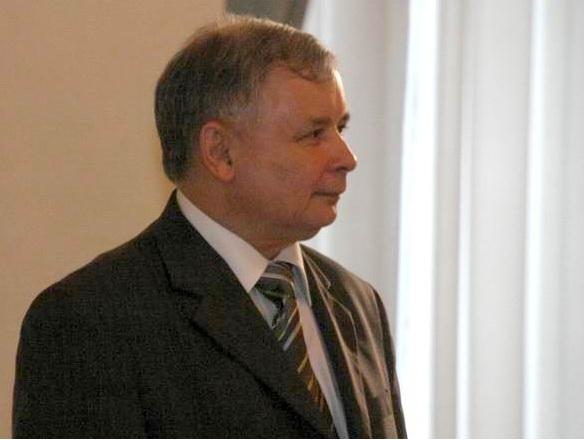Sad to say, Poland has been deluged by an outpouring of nasty rhetoric with antisemitic overtones. It has surfaced since the passage this month of controversial legislation which criminalizes the accusation that the “Polish nation” was complicit in the Holocaust and which outlaws the erroneous phrase “Polish death camp.”

These malicious expressions were swiftly and principally repudiated by Polish Prime Minister Mateusz Morawiecki and the head of the governing Law and Justice Party, Jaroslav Kaczynski. Nonetheless, they rattled Poland’s small Jewish community, which has enjoyed something of a renaissance since the end of the Communist era in 1989.
The new law was passed by the lower house and the Senate. It was then signed by President Andrzej Duda, who promised to ask the Constitutional Court to validate it.
Still other Polish officials claimed it would not affect historical scholarship.
Opponents argued it would stifle free speech, distort history and whitewash crimes committed by Poles during the Holocaust.
The news that such a law was under consideration sparked a nation-wide debate during which nationalist and pro-government officials and journalists claimed that Poland was under attack by foreign powers, namely Israel and the United States, and by Jewish organizations like the World Jewish Congress. In short order, in a disturbing reprise of the antisemitism that has plagued Poland since its independence in 1918, they unleashed a torrent of epithets.
Israel’s embassy in Warsaw was deluged by a steady stream of antisemitic letters.

Bogdan Zalewski, a journalist on the staff of the RMF radio station, wrote on his Facebook page. “Poles, we are at war! We are at war with the Jews! Not for the first time in our history.”
He went on to blame Jews for the advent of Soviet rule in Eastern Europe after World War II, accused Jews of imposing a reign of terror against Palestinian Arabs and the British in Mandate Palestine, and claimed that the U.S. government was “full of Jews in many key positions.”
In another egregious case, Rafal Ziemkiewicz, a writer and journalist who appeared as a guest on a television show on the state-owned TVP Info Channel, suggested that Jews had been partly responsible for the Jewish death toll during the Nazi occupation of Poland, and that the Nazi extermination camps should be known as “Jewish death camps.”
And in a tweet from the same station, an employee claimed that Israel’s negative reaction to the new Polish legislation was part of a nefarious plot to reclaim Jewish properties in Poland that had been seized and appropriated by both the Nazis and the Communists.
Much to its credit, RMF suspended Zalewski, who apologized and deleted his post, while TVP announced that the unnamed employee would be disciplined.

Duda’s advisor, Andrzej Zybertowicz, said that Israel’s response to the legislation stemmed from a “feeling of shame at the passivity of the Jews during the Holocaust.” It is true that most Jews went to their deaths quietly, not having been aware of the fate that awaited them. But what about the 1943 Warsaw ghetto uprising, or the scattered Jewish revolts that took place elsewhere in Nazi-occupied Poland?
To no one’s surprise, these primitive outbursts had a chilling effect on Jews living in Poland.

“We are receiving antisemitic, anti-Jewish statements on a daily basis,” lamented Anna Chipczyńska, president of the Jewish Community of Warsaw, in an interview with The Guardian. “Members of the community feel that their loyalty is being questioned, that people are expecting them to take a side. Some of them also indicate the silence of friends and work colleagues in the face of these attacks, and this really hurts them.”
Jan Gebert, a Jewish activist, wrote an open letter to Polish parliamentarians on behalf of Polish Jews, voicing concern that the legislation would discourage Holocaust survivors to speak up about Poles who had blackmailed or murdered Jews during the war.
And in a reference to the antisemitic campaign launched by the Polish regime in the wake of the 1967 Six Day War, he added, “In 1968, they talked about an international Zionist conspiracy. Now they talk about an international anti-Polish conspiracy.”
Rabbi Michael Schudrich, the chief rabbi of Poland, expressed fear that, due to the fallout from the legislation, some Jews in Poland might emigrate.
This is an outcome that no responsible Polish politicians desire.
Speaking in the city of Chelm, Prime Minister Morawiecki, who’s of partial Jewish descent, said, “I would like to invite everyone of you … to avoid antisemitic statements, because they are grist to the mill for our enemies, for our adversaries. Let’s avoid it like the plague, even the dumb, unnecessary jokes.”

Kaczynski issued an even stronger statement. “Today, the enemies of Poland, one can even say the Devil, are trying a very bad recipe … This sickness is antisemitism. We must reject it resolutely.”
He is absolutely correct.
Poland has every right to assert its sovereignty and disagree with its critics. But the Holocaust is not a purely Polish matter, and when Poles cross the red line into the swamp of antisemitism, they defame themselves and Poland too.
